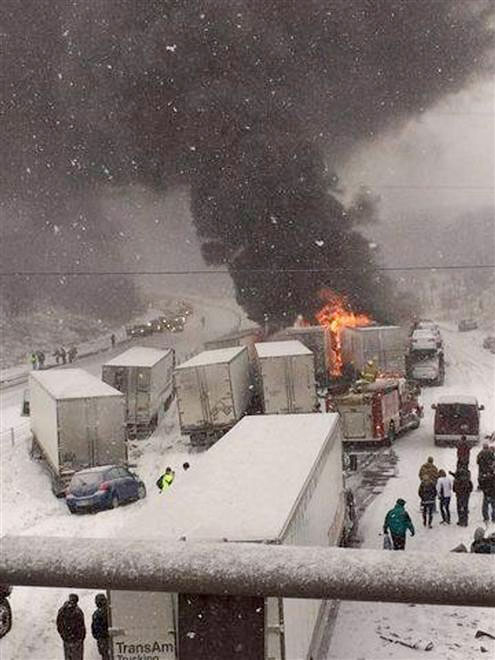It’s been a rough six weeks of bitter cold and giant snowbanks for may parts of the country, and a break in the frigid temperatures this week now is bringing the threat of tornadoes and severe thunderstorms to the midwest, while southern cities unaccustomed to ice and snow tote up the cost of recent storms.
The difficult winter of 2014 isn’t over yet, nor is its effect on business, consumers and the economy. So here’s one more roundup of story ideas and resources to get you through the next blizzard or icy snap.
The Associated Press is reporting that so far winter weather has cost businesses and the economy $15 billion that can’t be recaptured, botching sales for companies ranging from dog-walking services to yoga salons. Establishments like restaurants suffered a double whammy as not only were customers deterred by ice and harsh temperatures, but deliveries of necessary ingredients stymied as well. The AP story does a good job of sampling business owners for detailed estimates of lost revenue and the ripple effect on hourly workers. Note that the story cites as experts Planalytics, a consulting firm that specializes in “business weather intelligence;” it may be worth contacting them for a specific assessment on your region.
Insurance claims.
The Atlanta Journal-Constitution says storm-related insurance claims are expected to top $25 million in Georgia, citing state officials. And WIFR in Rockford, Ill. reports that insurers are seeing a 20-percent uptick in weather-related claims. And Fox34 in Texas reports that some insurance companies already are seeking permission from regulators to hike rates in 2014, following a variety of natural disasters. So as auto and homeowners assess damage, you might want to contact insurers and your state’s insurance commissioner to get similar intelligence on the state of insurance claims and premiums affecting your area’s consumers.
Auto repair.
On a related note, bad weather leads to potholes, which leads to all sorts of bad breaks for tires, vehicle suspensions and other parts. In additon to the sort of car crashes that patently are covered by insurance, drivers of damaged autos may be wondering if pothole damage is claimable. Maybe yes, but probably not, as this MLive.com report points out. A primer for consumers on what’s coverred, what’s not, how to make a claim for damage through the local road commission would make a nice clip-and-save feature. Tie in with a report on winter business for collision and tire repair shops — including demand for technicians — and perhaps a sidebar on must-fixes vs. repairs cash-strapped consumers (already reeling with high home heating bills) can safely put off till spring. Apps like Pothole Alert 311 might make an interesting tech sidebar as well. And of course, are any contractors reaping “black gold” by filling in the pesky craters with molten asphalt?
Vacationers.
With spring break season approaching, will students be competing with winter-weary workers and families desperate for a few days in balmy climes? According to CNBC, travel organizers and the like are report a spike in demand for warm-weather vacations, while sites like BookIt.com are warning of sellout status at some destinations. Obviously if you’re in one of those destinations, you can get a lot of mileage and color out of business generated by cold-climate refugees; if you’re in a winter clime, check with travel arrangers, charter companies, alumni groups and other tour operators and AAA about demand and how it will affect choices for next month’s spring breakers.











